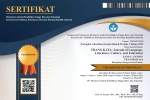Psychological Manipulation in Political Discourse: A Case Study of Facebook Posts on Urhobo Language Curriculum
DOI:
https://doi.org/10.54923/jllce.v3i1.44Keywords:
Text, social media, Urhobo language curriculum, psychological manipulation, political discourseAbstract
Texts, either written or spoken, are of varying types and serve different functions, including serving as a means of socially influencing people through underhanded tactics. In the present study, patterns of how the language used in social media-based political discourse reflects psychological manipulation tendencies on the part of netizens are examined. The goal is to investigate the psychological manipulation types and functions embedded in the texts. The study draws on insights from the perceived role that Facebook posts, comments, replies, and reactions had in the approval of the Urhobo Language Curriculum (UCL). The data for the study was collected from Facebook posts on the subject matter of the Urhobo language curriculum (ULC) made between 2015 and 2016. The discussion in the study is descriptive and leans on inference from addresses’ (evaluative) responses to the identified posts. These responses include comments, replies, and reactions. The approach adopted is based on the assumption that “... the perlocutionary effect of the addresser’s statement is represented in the addressee’s statement” (Boboshko 2015:64). It is argued that the texts used in social-media-based political discourses serve two functions: (i) informing; and (ii) brandishing emotions with the intention of manipulating a target into doing what one wants.





